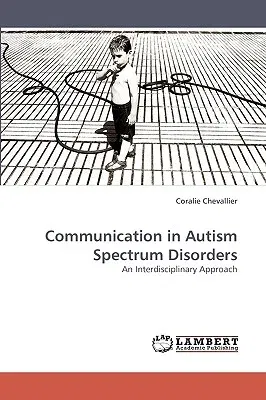Coralie Chevallier
(Author)Communication in Autism Spectrum DisordersPaperback, 9 May 2010

Qty
1
Turbo
Ships in 2 - 3 days
In Stock
Free Delivery
Cash on Delivery
15 Days
Free Returns
Secure Checkout
Print Length
244 pages
Language
English
Publisher
LAP Lambert Academic Publishing
Date Published
9 May 2010
ISBN-10
3838362543
ISBN-13
9783838362540
Description
Product Details
Author:
Book Format:
Paperback
Country of Origin:
US
Date Published:
9 May 2010
Dimensions:
22.86 x
15.24 x
1.4 cm
ISBN-10:
3838362543
ISBN-13:
9783838362540
Language:
English
Location:
Saarbrucken
Pages:
244
Publisher:
Weight:
362.87 gm

